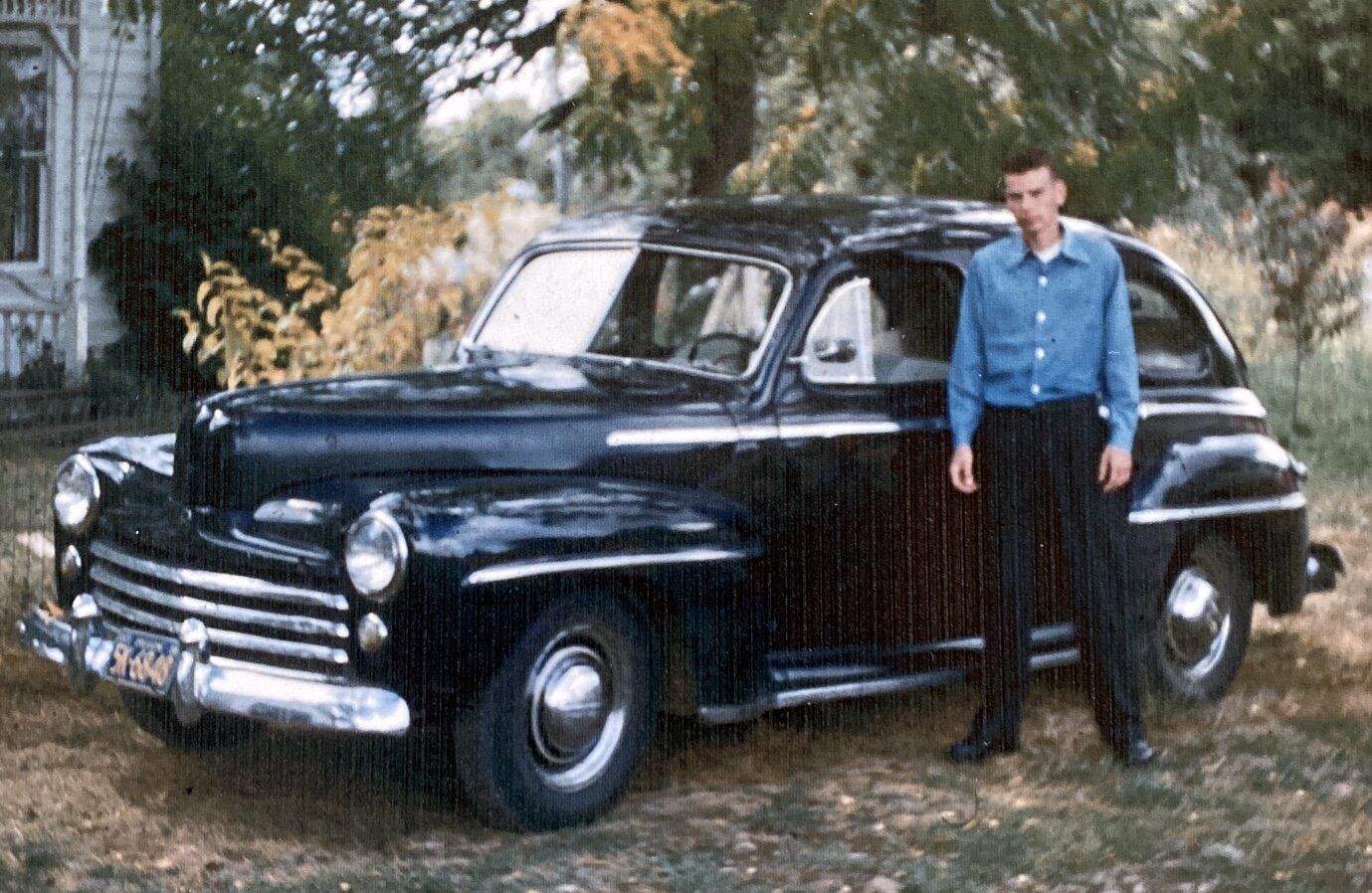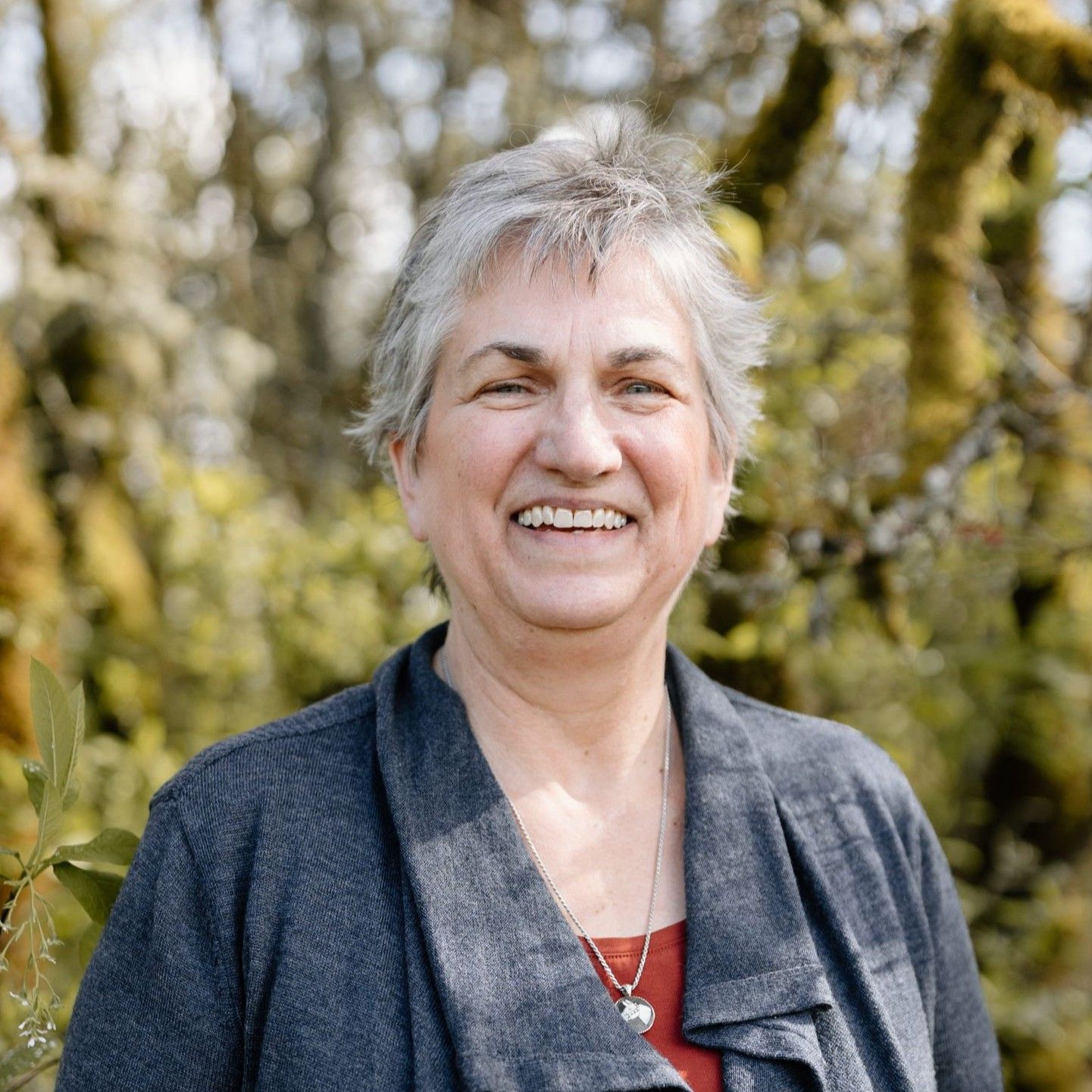A Daughter’s Journey
Jan 25
/
Kathi Gatlin

This has been a hard season in my life. My father passed the day after Christmas 2020 from COVID-19. He was careful in following the protocols, asking me not to come for my normal summer visit. This fall, after a thoughtful process, he had a knee replacement through a place offering day surgery. He had considered it a safe way to proceed, but suffered a reaction to the pain meds.
Within a short time, he experienced confusion and hallucinations and the hospital ER mistook these signs for dementia due to his age. They placed him in a rehab center to regain his strength. Once we were able to get the medication stopped, his normal awareness returned but he had caught this dreaded disease. It was a battle for the next two weeks before his body succumbed to the struggle.
How do we communicate the sadness we feel in holding the loss of a father?
It depends on the relationship you had with your father. For me, my dad was one of my closest relationships. He was one who believed in me, encouraged me to work hard, dream big, and risk following those dreams. Much of who I am is because of my dad. He was a man of character who loved to cook without recipes and taught me the freedom of creating in the kitchen. He helped make some of my dreams possible by offering a safety net as I took financial risks. He shared his wisdom, his love and his belief in me.
One of my favorite memories of my dad was when he sang Elvis Presley’s Hound Dog on his ukulele. My dad was completely tone deaf and didn’t know how to play any instrument, but he sang and strummed gleefully. A few years ago, I considered what I would like to have to remember my dad after he was gone. The ukulele came to mind as these memories flooded back. At the time, I asked him to put my name on it. It wasn’t a month later, a package arrived in the mail and the ukulele now sits in my room. I will miss my dad and our Sunday afternoon chats on the phone, talking politics, recipes, and the wildlife he sees in the morning from his deck.
Part of the loss I feel is amplified by the current political climate and the COVID restrictions due to the pandemic. These restrictions kept me from being by his side. It kept his wife of 25 years from visiting him in person. We tried to advocate for him by calling the nurses and talking to him multiple times a day.
Once he got past his confusion, he was able to advocate better for himself. But we still were not able to be with him. After he was admitted to the ICU and placed on a ventilator, the nurses set up a camera so we could pop in and see how he was doing. He was sedated so he looked like he was sleeping peacefully in stark contrast to his previous struggle to breathe. After coming off the ventilator, he died within a few days. It was hard not to be there. It is difficult because we can’t gather as a family to grieve.
It would be easy to blame the current political climate, with all the fighting over the reality of the pandemic and many not willing to give up their personal freedoms of gathering, traveling, or adhering to mask requirements. But blaming isn’t helpful.
We, nationally and globally, are in a struggle to figure out how to live faithfully. All of us probably have family members whose beliefs range the spectrum of all that is held true right now. Yes, it is complicated.
And yet, it is hard to listen to the news and hear the arguing, the rising death count, and the difficulty in getting vaccinations into people’s arms. It feels personal somehow, more than it was before. I find my hurting heart is unable to bear both the loss of my dad and the inability of a world to understand. Often, those close by have only a limited capacity to hold the pain of another in the midst of the losses they are experiencing themselves.
There are over 400,000 families who understand this in the same way I do as they navigate the loss of their own family members and friends. It is personal for them as it is personal for me. It is painful to walk this journey and the restrictions due to the pandemic increase the isolation for many.
So how do we walk alongside people in their sense of loss and confusion?
There is not a single answer to this question. Grief is a personal journey as people embrace the pain they experience. Listening without fixing in any way or without diminishing another’s pain is the way forward. Those on the grieving journey need to be quiet with themselves and they need to tearfully share memories and pain as they arise.
Sometimes a counselor or spiritual director can help in the mourning process. As we walk alongside others it is important to remember to walk at their pace. The journey goes as the journey goes and we can sit with and trust the one on the journey and the God who is with them. I will cover more of this in the next post.
There is work we all can do in allowing ourselves to be trustworthy soul companions. We can embrace the pain in our own lives. This requires refraining from judging ourselves and others, numbing our own pain, and blaming others for the way we feel limited, hurt, or misunderstood. The invitation is to look at our own inner world to understand what is beneath the feelings we have on the surface.
For example, when I am feeling sad, what is underneath the sadness? In my own grief journey, it is the feeling of not ever being able to call my dad on the phone or to visit him in person. I treasure the final couple of messages he left on my phone saying he loved me. This sadness is because of the deep love I shared with my dad.
Some would say that God allows suffering so we can be better in walking alongside others. This understanding makes me feel used and unloved by God, as if I am only a tool in the toolshed. Losing my dad, our loved ones, is never okay and designed by God to make us whole. But the truth remains that as we make meaning of the painful events in our lives, we are invited to greater freedom and wholeness.
The sadness I am experiencing honors my relationship with my dad. I want to embrace the sadness while trusting the process to transform me. This allows me to companion others in their suffering, without fixing or diminishing their pain. This is the gift of allowing this inner work - our own capacity for empathy and compassion increases. We become safer and more trustworthy for those on their own journey. It isn’t easy but it is essential in allowing ourselves to be fully human. May we all, in living out our faithfulness, become more fully human, more free and more whole.

Kathi Gatlin
Kathi Gatlin co-founded the Companioning Center and founded Boldly Loved to bring together her two greatest passions: spiritual formation and teaching. Walking alongside others in their spiritual journey, whether individually or in groups, brings her immense joy. She loves sharing the contemplative life and exploring ways of understanding God with others. Ultimately, seeing companions grow deeper in their own understanding of who God is and who they are in relationship with God is her faithfulness.
Kathi is a trained spiritual director, supervisor, writer, spiritual formation group facilitator, retreat speaker, leadership mentor, and adjunct professor with George Fox University and Portland Seminary.
Kathi has two grown daughters and five delightful grandchildren. She enjoys coffee, chocolate, deep conversations, reading the mystics, and walking in trees with her Covid puppy, Oliver. http://www.boldlyloved.org

